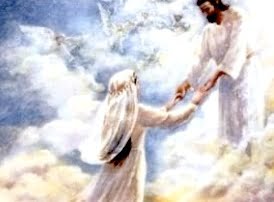Matthew 13:44.
These two parables are similar in nature, both refer to something precious, yet there are differences. A treasure hid in a field implies there will be work to separate the treasure from the earth, refining and cleaning it until it reveals a beautiful and polished gem.
The “field” is a picture of the world in general. Our Lord purchased the whole world when he died on the cross. Jesus has found treasure in the “field” (the world). These are people of faith who trust in God, seeking after the truth and who are sincere in their desire to know him. These having come to Jesus, accepted him as their savior. They are the brethren with whom the Apostle Paul pleads in Romans 12:1, “I beseech you, brethren, by the mercies of God, present your bodies a living sacrifice, holy and acceptable to God, your reasonable service.”
Why? Because Romans 12:2, “And do not be conformed to this world, but be transformed by the renewing of your mind, that you may prove what is that good and acceptable and perfect will of God.” God’s will is for us to be transformed into Christ’s image; we are the hidden treasure to Jesus.
Matthew 13:45-46.
The pearl of great price is also a treasure but there is a difference.
A pearl is created in nature by the oyster when an irritant such as a bit of sand enters the oyster’s shell. The oyster protects itself by covering the bit of sand with beautiful material, unseen from mankind, but when the pearl is revealed, it is perfect. It needs no cutting or polishing like other gems that are carved from the rocks.
This pictures the church’s development through our present experiences, unseen by the world. When the church is fully developed, brought forth in perfection, it will be a pearl! Each individual, having made a full consecration, begotten of the holy spirit to a new nature, begins the development process. When completed, if faithful, the new creature will have the perfection of Godlike character to which we are called. 1 Peter 2:9: “But you are a chosen generation, a royal priesthood, a holy nation, His own special people…”














